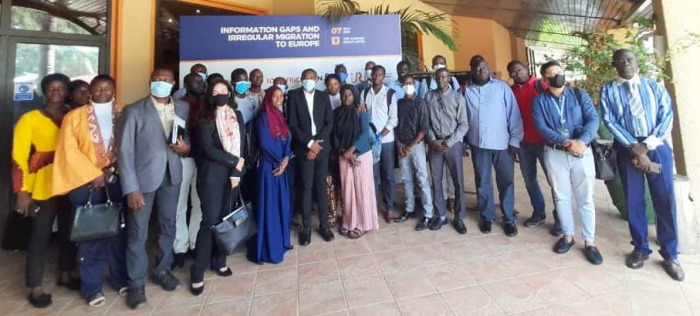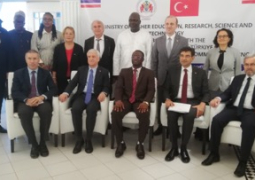
The project funded by AMIF European Commission, worked with about 4000 young males in the Upper and Central River Regions of The Gambia from 2019 to 2021.
The project provides information to participants about migration to Europe and Senegal and to give them the opportunity to participate in vocational skills training programme.
Prof. Dr. Catia Batista, Nova school of Business and Economics, NOVAFRICA during her presentation said migration has large potential benefits to individual migrants, but lamented the risky consequences related to irregular migration.
“The Central Mediterranean route has brought many migrants from West Africa to Libya through the Sahara Desert and from there to Italy by sea. Crossing the desert in Libya and the Mediterranean carries substantial deaths and risk upon arrival in Libya and low probability of getting a legal residence permit.” she added.
According to her presentation, the theory of change in addition to information is deterring irregular migration to Europe, saying this intervention provides a viable alternative to improving prospective migrant lives.
Prof. Dr. Tijan L. Bah, Navarra Center for International Development and NOVAFRICA and University of The Gambia, talked about how COVID-19 has impacted migration.
"We find that migration intention to both Europe and especially to Senegal decreased. Those who were unsure about migration pre covid-19 and poor individuals for whom may have made liquidity constraints more binding.” he explained.
Bah maintained that still the desire for migration is still incredibly high at 55 percent, adding that they are likely to migrate with 15% considering to use the ‘back-way’.




